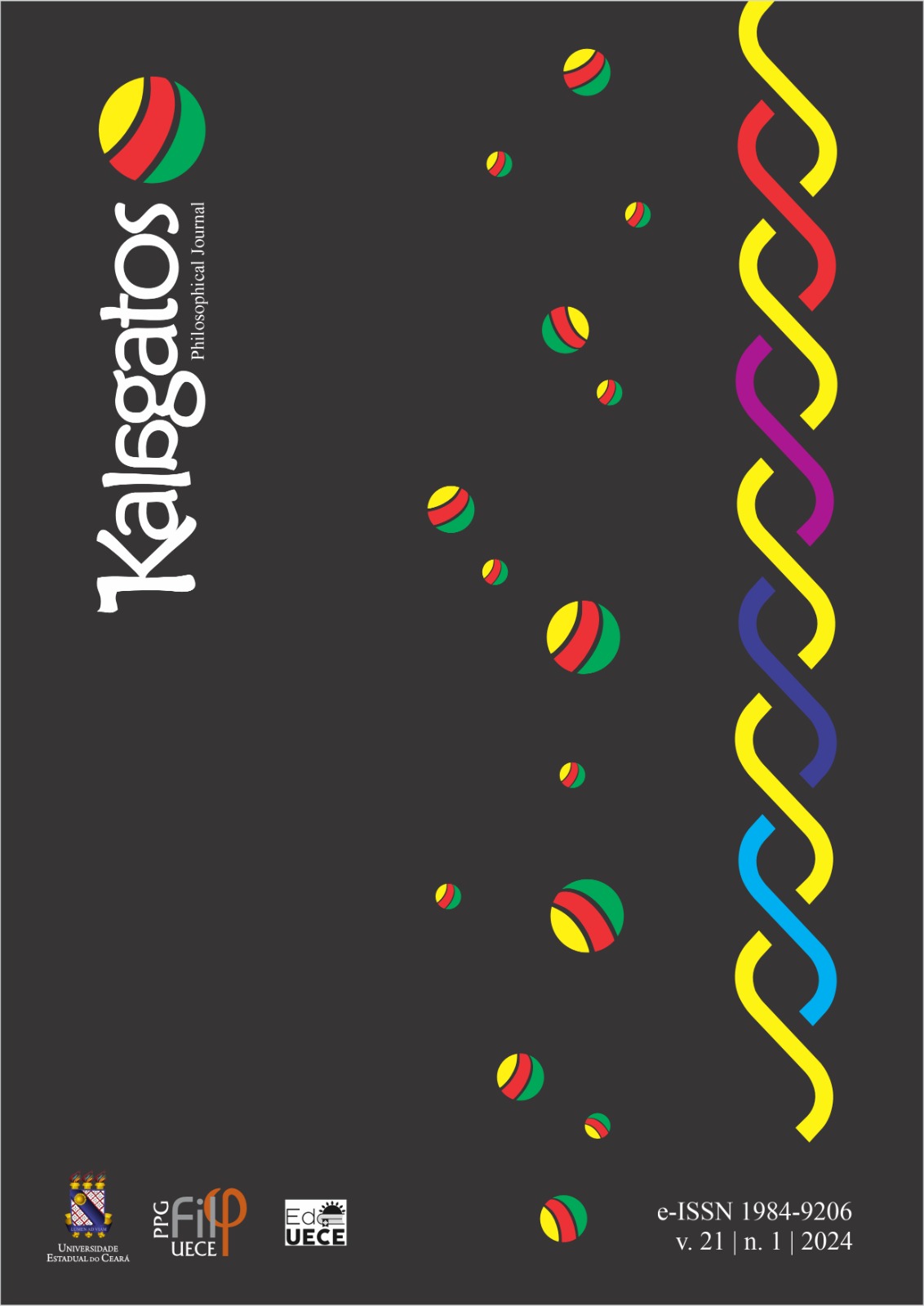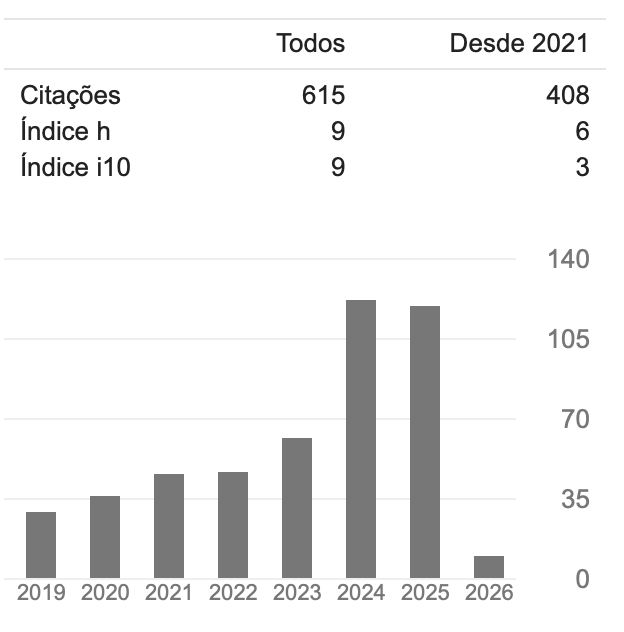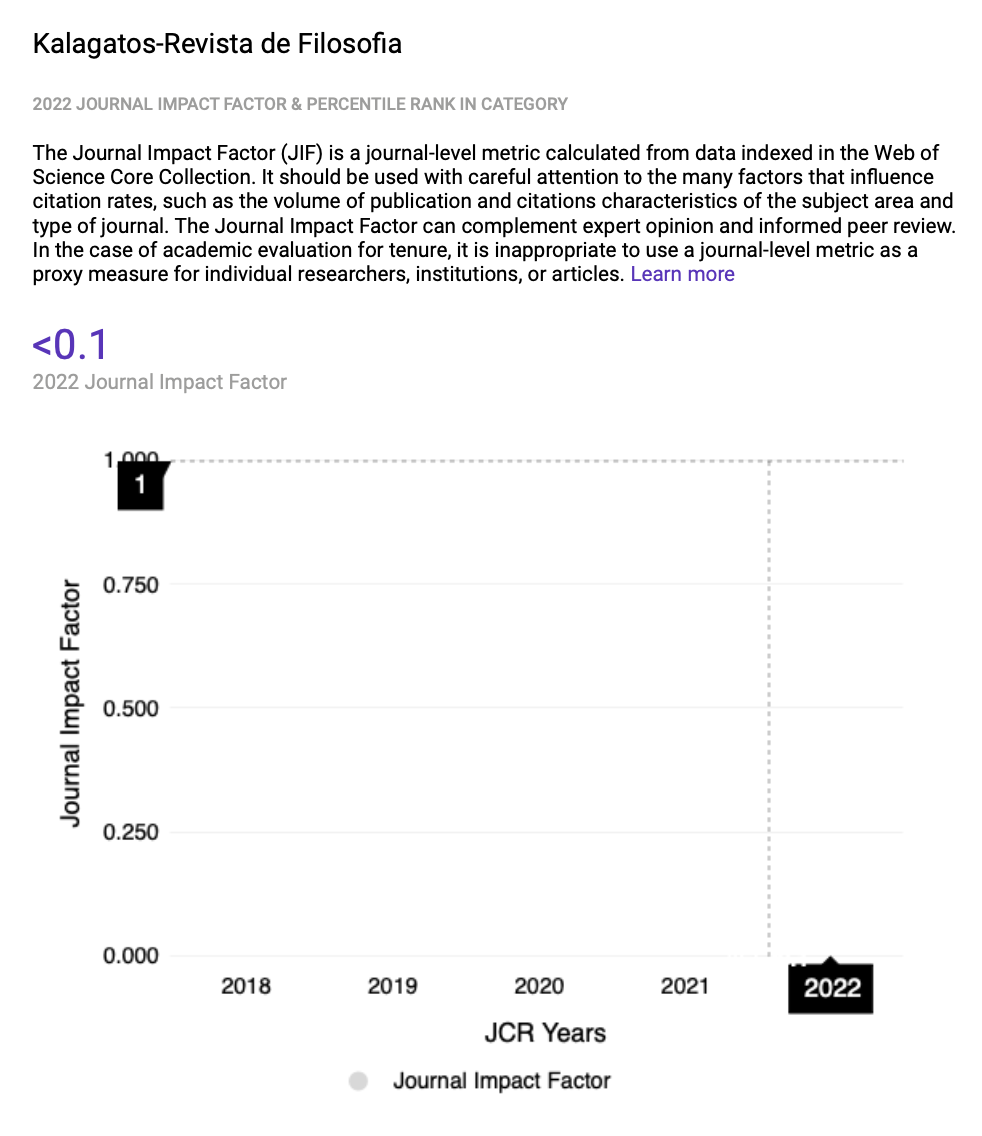Explorando as Fronteiras da Superveniência: Uma defensa disjuntivista ao argumento da Causalidade
Palavras-chave:
Disjuntivismo, Realismo Ingênuo, Argumento Causal, Superveniência Local, Michael MartinResumo
O objetivo deste estudo é fornecer uma defesa do Realismo Ingênuo/Disjuntivismo, apresentando uma nova resposta ao Argumento Causal de Michael Martin que resista à sua subconclusão de que as percepções instanciam a propriedade fundamental das alucinações. Para alcançar esse objetivo, conduzimos uma análise crítica da premissa do argumento, que sustenta que meros processos mentais são suficientes para a exemplificação das propriedades fundamentais das alucinações. Direcionamos nossos questionamentos às razões apresentadas por defensores do argumento, que se baseiam na conjunção de duas proposições. A primeira proposição, nosso foco no presente estudo, afirma que as experiências, em geral, são exclusivamente causadas por processos cerebrais. Essa razão é principalmente respaldada por regularidades observadas entre o cérebro e eventos mentais. No entanto, questionamos esse último passo com base na concepção de que ele implica uma conclusão inadequada a partir de dados empíricos. Em primeiro lugar, isso ocorre por desconsiderar possíveis hipóteses causais adicionais que, segundo o modelo de causação de propriedades determináveis, admitem padrões extras sobrepostos. Em segundo lugar, a razão ignora algumas observações fundamentais sobre subdeterminação empírica
Downloads
Referências
BREWER, B. Perception and its objects . Oxford: Oxford University Press, 2011.
BIRD, A. Nature's Metaphysics . Oxford: Oxford University Press, 2007.
BOGHOSSIAN, P. “The transparency of mental content”. Philosophical Perspectives , vol. 8 , p. 33-50, 1994.
BROAD, CD Lectures on Psychical Research: Incorporating the Perrott Lectures Given at Cambridge University in 1959 and 1960 . Routledge, 1962.
BURGE, T. “Belief de re”. Journal of Philosophy , vol. 74, p. 338-362, 1977.
BURGE, T. “Five Theses on de re states and attitudes”. In: ALMOG, J .; LEONARDI, P. (Eds.). The Philosophy of David Kaplan . Oxford: Oxford University Press, 2009. p. 72-86.
BYRNE, A.; LOGUE, H. Either / or. In: HADDOCK, A .; MACPHERSON, F. (Eds.). Disjunctivism: Perception, Action, Knowledge . Oxford: Oxford University Press, 2008. p. 314-319.
CAMPBELL, J. Reference and Consciousness . Oxford, GB: Oxford University Press, 2002.
CAMPBELL, J. “Consciousness and Reference”. In: MCLAUGHLIN, Brian; BECKERMANN, Ansgar ; WALTER, Sven ( eds .). The Oxford Handbook of Philosophy of Mind . Oxford University Press, 2009.
CAMPBELL, J. “Visual Attention and the Epistemic Role of Consciousness”. In: MOLE, Christopher; SMITHIES, Declan; WU, Wayne ( eds .). Attention: Philosophical and Psychological Essays . Oxford University Press, 2011. p. 323.
CRANE, T. “What Is the Problem of Perception?” Synthesis Philosophica , vol. 20, p. 237-264, 2005.
CRANE, T. “Is There a Perceptual Relation?” In: GENDLER, S.; HAWTHORNE, J. ( eds .). Perceptual Experiences . Oxford: Oxford University Press, 2006. p. 126–146.
CRANE, T; FRENCH, C. “The Problem of Perception”. The Stanford Encyclopedia of Philosophy ( Fall 2021 Edition), Edward N. Zalta (Ed.). Available at: https://plato.stanford.edu/archives/fall2021/entries/perception-problem/. Accessed on: [access date].
ELLIS, B. Scientific Essentialism . CambridgeUniversity Press , 2001.
ELLIS, B. The Philosophy of Nature: A Guide to the New Essentialism . McGill-Queen's University Press, 2002.
EVANS, G. The Varieties of Reference . Oxford: Oxford University Press, 1982. Edited by John Henry McDowell.
FARKAS, K. “ Indiscriminability and the sameness of appearance”. Proceedings of the Aristotelian Society , vol. 106, no. 2 , p. 39-59, 2006.
FISH, W. Perception, Hallucination and Illusion . Oxford: Oxford University Press, 2009.
FRAGOSO, F. B. R. O princípio de razão suficiente e suas raízes. Kalagatos – Revista de Filosofia (versão on-line) , v. 12, p. 197-224, 2015.
GRICE, HP “The Causal Theory of Perception”. Proceedings of the Aristotelian Society, Supplementary Volume , vol. 35, p. 121–168, 1961.
JOHNSTON, M. “The obscure object of hallucination”. Philosophical Studies , vol. 120, no. 1-3, p. 113-83, 2004.
HAWTHORNE, J.; KOVAKOVICH, K. “Disjunctivism”. Aristotelian Society Supplementary Volume , vol. 80, no. 1, p. 145-183, 2006.
HILL, C. Consciousness . Cambridge: Cambridge University Press, 2009.
HINTON, J. “Visual Experiences”. Mind , vol. 76, p. 217–227, April 1967.
HINTON, J. Experiences: An Inquiry into Some Ambiguities . Oxford: Clarendon Press, 1973.
HELLIE, B. “The multidisjunctive conception of hallucination”. In: MACPHERSON, F. (Ed.). Hallucination . Cambridge: MIT Press, 2013.
HOMMEN, D. “Moore and Schaffer on the Ontology of Omissions”. Journal for General Philosophy of Science v. 45, no. 1, p. 71-89, 2014.
HUME, D. A treatise of human nature: a critical edition . New York: Oxford University Press. Edited by David Fate Norton & Mary J. Norton, 2007.
IVANOV , I. Bad to the bone: essentially bad perceptual experiences. Inquiry , pp.1–27. https://doi.org/10.1080/0020174X.2022.2028672 , 2022.
IVANOV. I. The integration problem for naive realism. Metaphilosophy , v.54, n.5, pp.697-716, 2023.
KAPLAN, D. “Demonstratives”. In: ALMOG, J.; PERRY, J.; WETTSTEIN, H. (Eds.). Themes from Kaplan . Oxford: Oxford University Press, 1989. p. 481-563.
LANGSAM, H. “The theory of appearing defended”. Philosophical Studies , vol. 87, p. 33-59, 1997.
LEWIS, D. On the Plurality of Worlds . Oxford: Blackwell, 1986.
LOGUE, H. “Good News for the Disjunctivist about (one of) the Bad Cases”. Philosophy and Phenomenological Research , vol. 86, no. 1, p. 105-133, 2011.
LOGUE, H. “What should the naïve realist say about total hallucinations?” Philosophical Perspectives , vol. 26, p. 173-199, 2012.
MACPHERSON, F.; BATTY, C. “Redefining Illusion and Hallucination in Light of New Cases”. Philosophical Issues , vol. 26, no. 1, p. 263-296, 2016.
MACPHERSON, F. “The Philosophy and Psychology of Hallucination: An Introduction.” In: MACPHERSON, F .; PLATCHAIS, D. (Eds.). Hallucination: Philosophy and Psychology . Cambridge, MA: MIT Press, 2013. p. 1-38.
MARTIN, M. “The Reality of Appearances”. In: SAINSBURY, M. (Ed.). Thought and Ontology . Milan: Franco Angeli , 1997.
MARTIN, M. “The Transparency of Experience”. Mind & Language , vol. 17, no. 1, p. 376-425, 2002.
MARTIN, M. “The limits of self-awareness”. Philosophical Studies , vol. 120, no. 3 , p. 37-89, 2004.
MCDOWELL, J. “Singular thought and the extent of 'inner space'”. In: MCDOWELL, John; PETTIT, Philip ( eds .). Subject, Thought, and Context . Clarendon Press, 1986.
MCDOWELL, J. Intentionality "de re". In: LEPORE, Ernest; VAN GULICK, Robert ( eds .). John Searle and His Critics . Cambridge: Blackwell, 1991. p. 215-225.
MCDOWELL, J. “Putnam on Mind and Meaning.” Philosophical Topics , vol. 20, no. 1, p. 35-48, 1992.
McDOWELL , J. “The Disjunctive Conception of Experience as Material for a Transcendental Argument”. In: HADDOCK, A .; MACPHERSON, F. (Eds.). Disjunctivism: Perception, Action, Knowledge . Oxford University Press, 2008. p. 35-56.
MOLNAR, G. Truthmakers for negative truths. Australasian Journal of Philosophy , vol. 78, p. 72-86, 2000.
MOORE, MS Causation and responsibility. Oxford: Oxford University Press, 2009.
MORAN, A. Naïve Realism, Hallucination, and Causation: A New Response to the Screening Off Problem. Australasian Journal of Philosophy , vol. 97, p. 368-382, 2019.
MORAN, A. Disjunctivism and the Causal Conditions of Hallucination. Erkenntnis , p. 1-24, 2022a.
MORAN, A. Memory Disjunctivism: a Causal Theory. Review of Philosophy and Psychology 13 (4):1097-1117, 2022b.
NUDDS, M. Recent Work in Perception: Naïve Realism and its Opponents. Analysis , vol. 69, no. 2 , p. 334-346, 2009.
NUNES FILHO, L. M. ; SANTOS, B. R. G. . Psicologia empírica e Psicologia descritiva: O estatuto ontológico do objeto intencional em Brentano. Kalagatos – Revista de Filosofia (versão on-line), v. 11, p. 93-123, 2015.
PERRY, J. The Problem of the Essential Indexical. Noûs , v. 13, p. 3-21, 1979.
PERRY, J. " Frege on Demonstratives." Philosophical Review , vol. 86, p. 474-497, 1977.
PRITCHARD, D. Epistemological Disjunctivism . Oxford: Oxford University Press, 2012.
PUTNAM, H. "The Meaning of 'Meaning'." Minnesota Studies in the Philosophy of Science , vol. 7 , p. 131-193, 1975.
ROJAS, ALD Considerations about it perception from the enactive perspective . Principia: An International Journal of Epistemology , vol. 24, no. 1, p. 29-49, 2020.
ROBINSON, H. "The general form of the argument for Berkeleyan idealism." In: Essays on Berkeley: A Tercentennial Celebration . Oxford University Press, 1985. pp. 163--186.
ROBINSON, H. Perception . New York: Routledge, 1994.
ROWLANDS, M.; LAU, J.; DEUTSCH, M. "Externalism About the Mind." In: ZALTA, EN (Ed.), The Stanford Encyclopedia of Philosophy , 2020.
SMITH, A.D. "Disjunctivism and discriminability." In: HADDOCK, A .; MACPHERSON, F. (Eds.). Disjunctivism: Perception, Action, Knowledge . Oxford University Press, 2008.
SEARLE, J. Intentionality . Oxford: Clarendon Press, 1983.
SIEGEL, S. " Indiscriminability and the phenomenal." Philosophical Studies , vol. 120, no. 1-3, p. 91-112, 2004.
SIEGEL, S. "The Epistemic Conception of Hallucination." In: HADDOCK, A .; MACPHERSON, F. (Eds.). Disjunctivism: Perception, Action, Knowledge . Oxford University Press UK, 2008.
SCHAFFER, Jonathan. "Causation by disconnection." Philosophy of Science , vol. 67, no. 2 , p. 285-300, 2000.
SNOWDON, P. "Perception, vision, and causation." Proceedings of the Aristotelian Society , vol. 81, no. 1, p. 175-192, 1981.
SNOWDON, P. "The Objects of Perceptual Experience." Proceedings of the Aristotelian Society, Supplementary Volume , vol. 64, p. 121-150, 1990.
SNOWDON, Paul F. "Some Reflections on an Argument from Hallucination." Philosophical Topics , vol. 33, no. 1, p. 285-305, 2005a.
SNOWDON, P. F. "The Formulation of Disjunctivism: A Response to Fish." Proceedings of the Aristotelian Society , vol. 105, no. 1, p. 129-141, 2005b.
SOLLBERGER, M. "Naïve Realism and the Problem of Causation." Disputatio , v. 3 , no. 25, p. 1-19, 2008.
SOLLBERGER, M. "Causation in Perception: A Challenge to Naïve Realism." Review of Philosophy and Psychology , vol. 3 , p. 581-595, 2012.
SOLLBERGER, M. "The Causal Argument against Disjunctivism." Fact Philosophy , vol. 9 , no. 1, p. 245-267, 2007.
SOTERIOU, M. Disjunctivism . Routledge, 2016.
SOTERIOU, M. "The Disjunctive Theory of Perception". In: The Stanford Encyclopedia of Philosophy . Summer 2020 Edition. Ed. Edward N. Zalta .
STEWARD, H. The Ontology of Mind: Events, Processes, and States . Oxford: Oxford University Press, 1997.
STRAWSON, PF "Perception and its Objects". In: MACDONALD, GF (Ed.). Perception and Identity . London: Macmillan, 1979.
STURGEON, S. "Disjunctivism about visual experience". In: HADDOCK, A .; MACPHERSON, F. (Eds.). Disjunctivism: Perception, Action, Knowledge . Oxford: Oxford University Press, 2008, p. 112-143.
THAU, M. Consciousness and Cognition . Oxford: Oxford University Press, 2002.
TŐZSÉR, J. "The phenomenological argument for the disjunctive theory of perception". European Journal of Analytic Philosophy , vol. 5 , n. 2, p. 53-66, 2009.
TYE, M. " Intentionalism and the Argument from No Common Content." Philosophical Perspectives , vol. 21, no. 1, p. 589-613, 2007.
TYE, M. "What is the Content of a Hallucinatory Experience? ". In: BROGAARD, B. (Ed.). Does Perception Have Content? Oxford: Oxford University Press, 2014, p. 292-308.
Downloads
Publicado
Como Citar
Edição
Seção
Licença
Copyright (c) 2024 Ícaro Miguel Ibiapina Machado

Este trabalho está licenciado sob uma licença Creative Commons Attribution 4.0 International License.



















